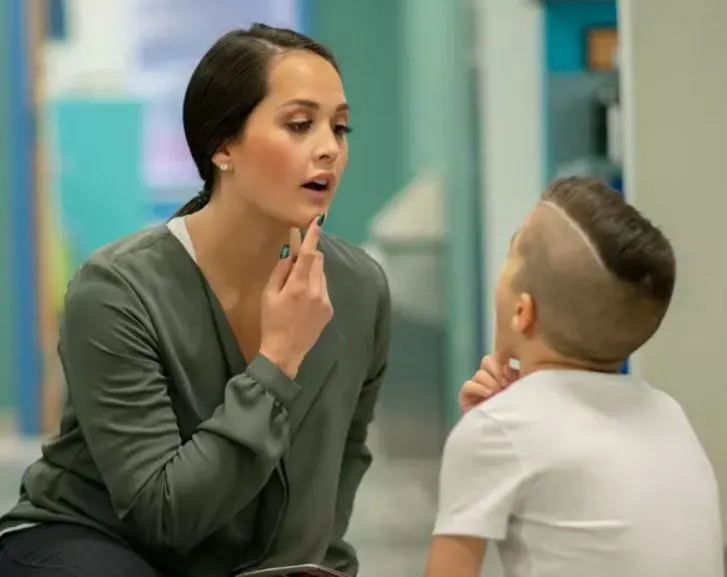Healthcare providers may refer people diagnosed with autism spectrum disorder (ASD) to speech therapy. In some cases, this can help autistic children with limited or compromised speech and their families gain vital communication skills.1
Even very verbal autistic people are likely to benefit from speech therapy. That’s because, while they can form words and sentences, they are likely to misuse and misunderstand language on a regular basis.
This article explains how speech therapy can help autistic people and offers some tips on how to find a qualified speech therapist. Speech therapy involves the treatment of speech and communication disorders, which means it’s a very wide-ranging field.
Speech therapy can help children with stutters or lisps to pronounce words correctly, but it can also help children with developmental disorders to understand and use spoken language in a social context.2
A certified speech-language pathologist (SLP) is a communication expert who holds a master’s degree.3 Also known as a speech therapist, an SLP may work in a private setting, a clinic, a school, or an institution and may be a part of an educational team. Speech therapists use a wide range of tools and interventions, ranging from toys and play-like therapy to formal tests and speech curricula.
Autism is a social communication disorder. Some people with autism are nonverbal or have limited oral language skills. Others develop a strong vocabulary quickly, usually related to a special interest, but have difficulty with nonverbal communication.4
Speech therapists can play a major role in helping an autistic child learn to communicate and engage with other people.
The first step in speech therapy is an assessment to determine your child’s needs and develop a treatment plan. Depending on the setting, your child’s therapist may work 1:1 or in groups.
It’s important to note that while speech therapy may be viewed as a “must” for autistic children, it can also benefit autistic adults. Children often focus on the basics of communication, while adults may focus on more subtle forms of communication for different types of social interactions.5
Speech therapists may work as part of your child’s educational team or in conjunction with Speech therapists address communication and feeding challenges in people with autism in several ways.









